Whether you’re scrolling through shelters or chatting with breeders, it’s hard to miss how stunning blue eyes in dogs grab your attention. But here’s the thing: blue-eyed dogs aren’t simply eye candy—they’re rare.
First, breeds with bright blue eyes—from merle-coated pups to icy-eyed herding dogs—can bring unique challenges and joys. These playful dogs often belong to high-energy groups like working breeds. On the flip side, blue eye color can correlate with certain health quirks, such as hearing problems or sensitivity to sunlight, especially in dogs carrying merle patterns or piebald genes.
What this means is that blue-eyed pups can be truly one-of-a-kind companions, but they also require a bit more understanding and care.
Dog Breeds with Blue Eyes for New Pet Owners
Here are seven blue-eyed dogs:
1. French Bulldog
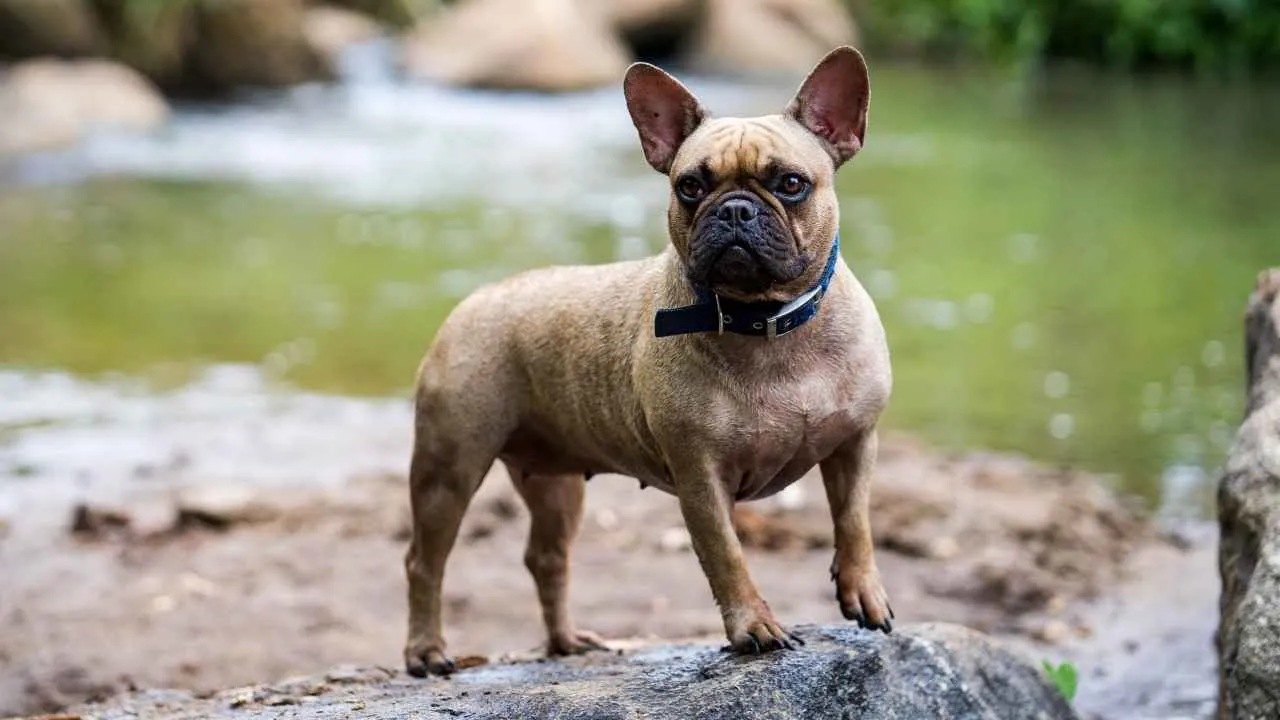
Height: 11–13 inches
Weight: Under 28 pounds
Group: Non-sporting (according to the American Kennel Club, AKC)
Lifespan: 10-12 years
While not all French Bulldogs have them, some can sport blue eyes, especially those with merle coats or dilute-colored fur. That rare flash of blue adds an unexpected pop to their already adorable appearance—and it’s part of what makes this breed stand out in the canine world.
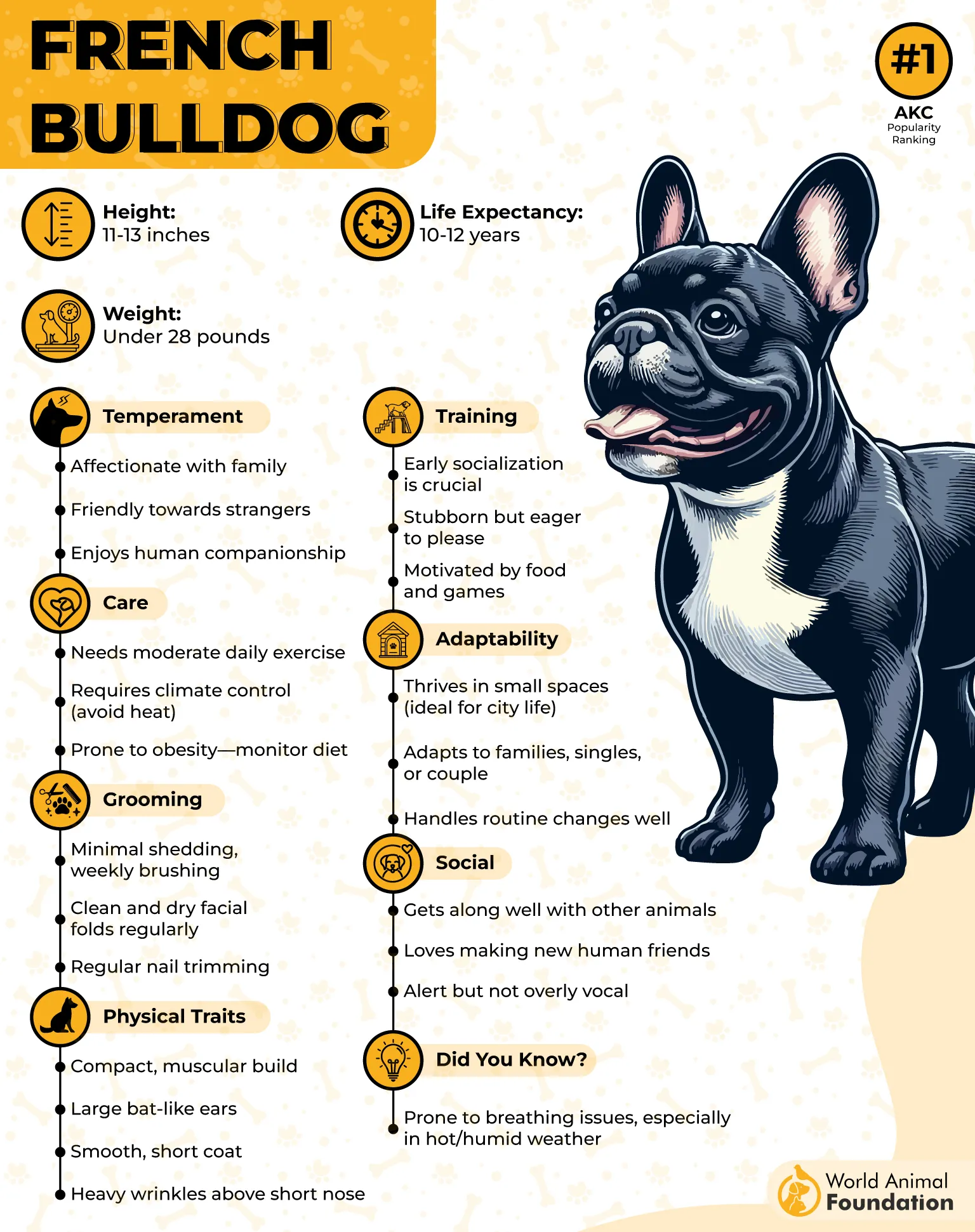
Why Frenchies Win Hearts
These pups are hard to miss with their bat-like ears, squishy faces, and endlessly loyal personalities. Known for being playful dogs that thrive on companionship, Frenchies bring a lot of love in a compact package.
Key traits
Naturally affectionate and thrive in homes where they get plenty of attention.
Low exercise and grooming needs—perfect for city living or chill households.
Known for their quirky vocal range: snorts, grunts, and even howls.
Not fans of harsh criticism—they’re sensitive, both emotionally and physically.
Despite a high price tag, they’re widely adopted and loved.
Often seen with celebs and influencers.
Frenchies don’t just look unique—they sound unique, too. While not loud barkers, they’ve developed a funny little language of their own.
2. Dachshund

Height: 5–9 inches
Weight: 11–32 pounds
Group: Hound
Lifespan: 12–16 years
Though uncommon, blue eyes can occasionally appear in Dachshunds, especially in dapple-coated (a type of merle) varieties. This coat pattern can sometimes influence eye color, leading to one or even both blue eyes, a striking contrast against their typically darker coloring.
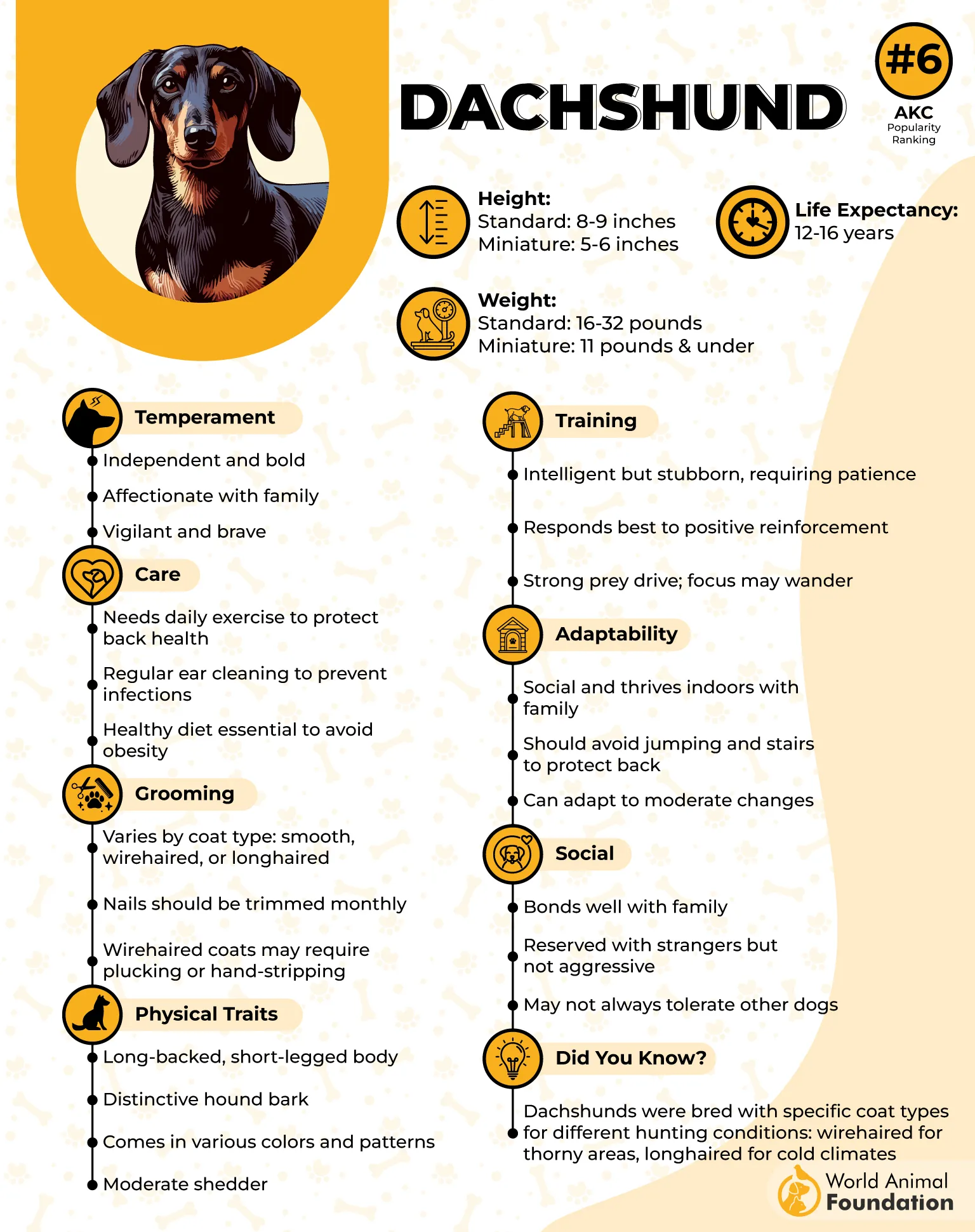
Why Doxies Are Small but Mighty
According to PetMD, these playful dogs pack a serious personality. Nicknamed “wiener dogs” for their long, low bodies, Dachshunds are known for their brave spirits and watchful nature.
Key traits
Originally bred for hunting large game like badgers—hence the name “badger dog”.
Short legs and long torso give them their iconic silhouette.
Energetic temperament—they love to dig, chase, and explore.
Distinctive forward-flopping ears help block out dirt while burrowing.
Naturally alert, making them great watchdogs.
While blue eyes add a unique touch to certain Dachshunds, their bold personality, intelligent behavior, and curious nature are what truly define them. Whether they’re chasing scents or curling up in your lap, these dogs are always on the move—and always on your side.
3. Shih Tzu
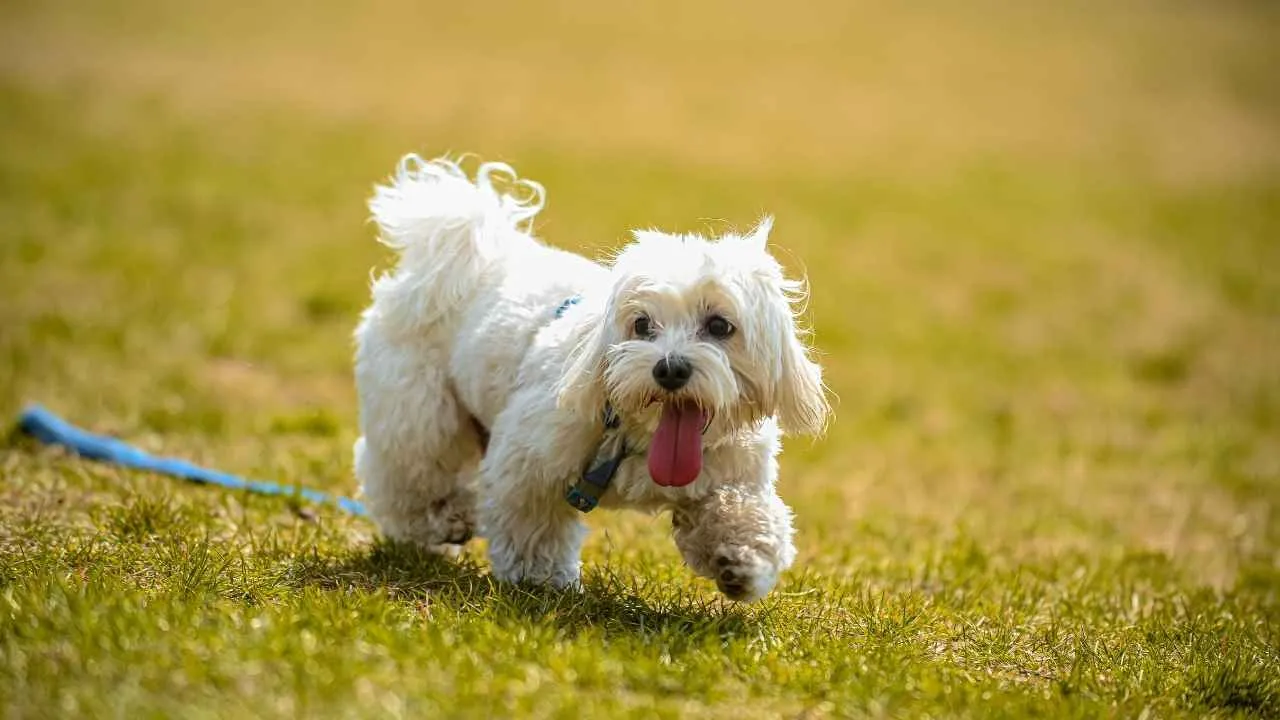
Height: 9–10.5 inches
Weight: 9–16 pounds
Group: Toy
Lifespan: 10–18 years
While extremely rare, some Shih Tzus may be born with blue eyes due to a lack of pigment-producing genes, specifically, when there’s a dilution in the gene responsible for black. This results in lighter eye color, occasionally creating soft blue or icy blue eyes that stand out against their signature coat.
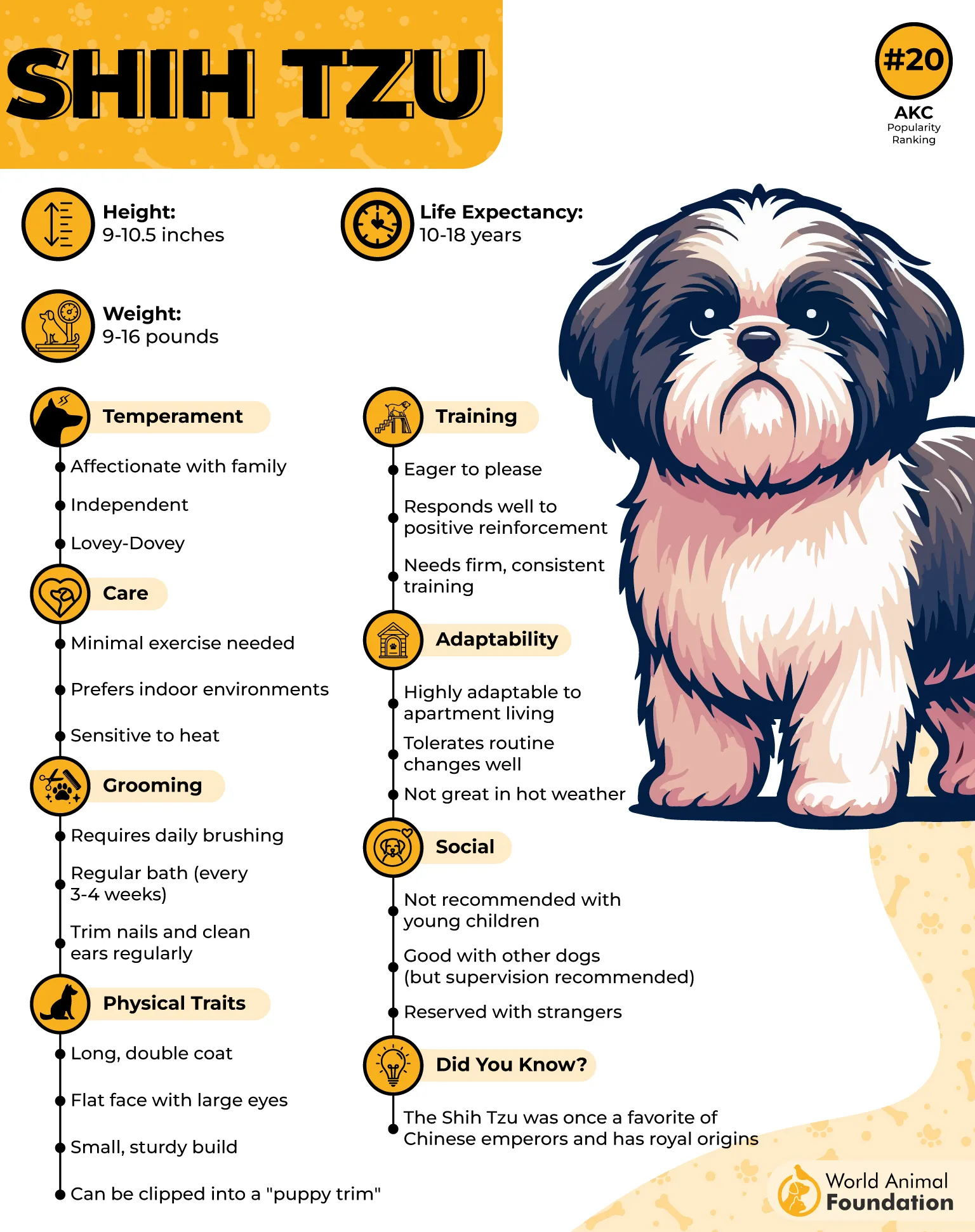
Small, Silky, and Surprisingly Athletic
Shih Tzu means “little lion,” but there’s nothing fierce about this gentle, loving breed. Known for their soft, flowing coats and sweet temperament, these dogs are both regal and playful.
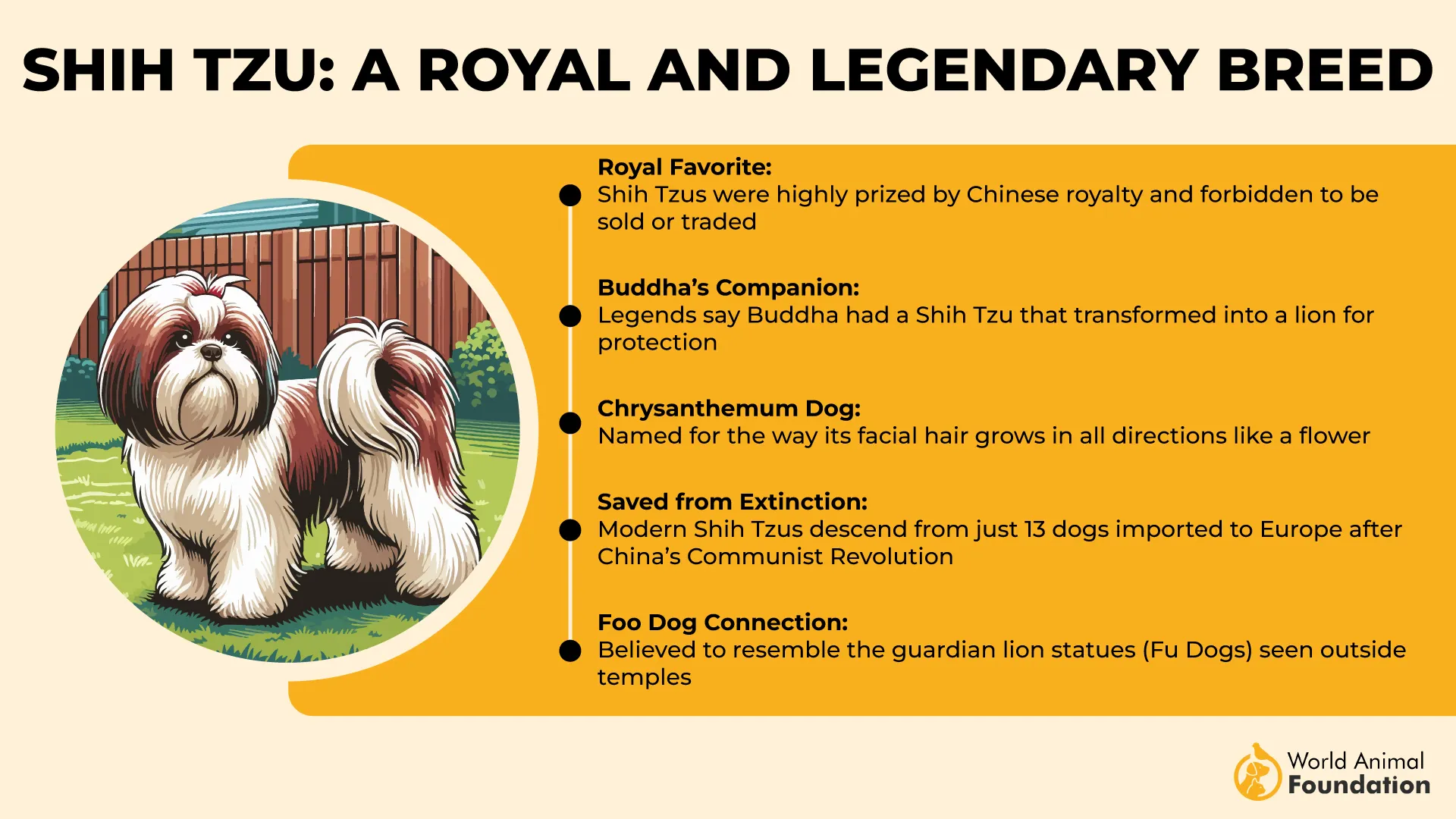
Key traits
Long, double coat in a variety of colors, often accented with white spotting
Requires regular brushing to prevent tangles, but doesn’t shed much
Brachycephalic breed—known for its distinctive flat face
Despite the dainty appearance, they’re sturdy and athletic
Originally bred to serve royalty in ancient China
Though not commonly seen with blue eyes, a Shih Tzu’s charm lies in its warm personality, intelligent expression, and lush, unique coat patterns. They’re the perfect mix of lap dog and lively sidekick—and occasionally, those blue eyes make them even more captivating.
4. Cardigan Welsh Corgi
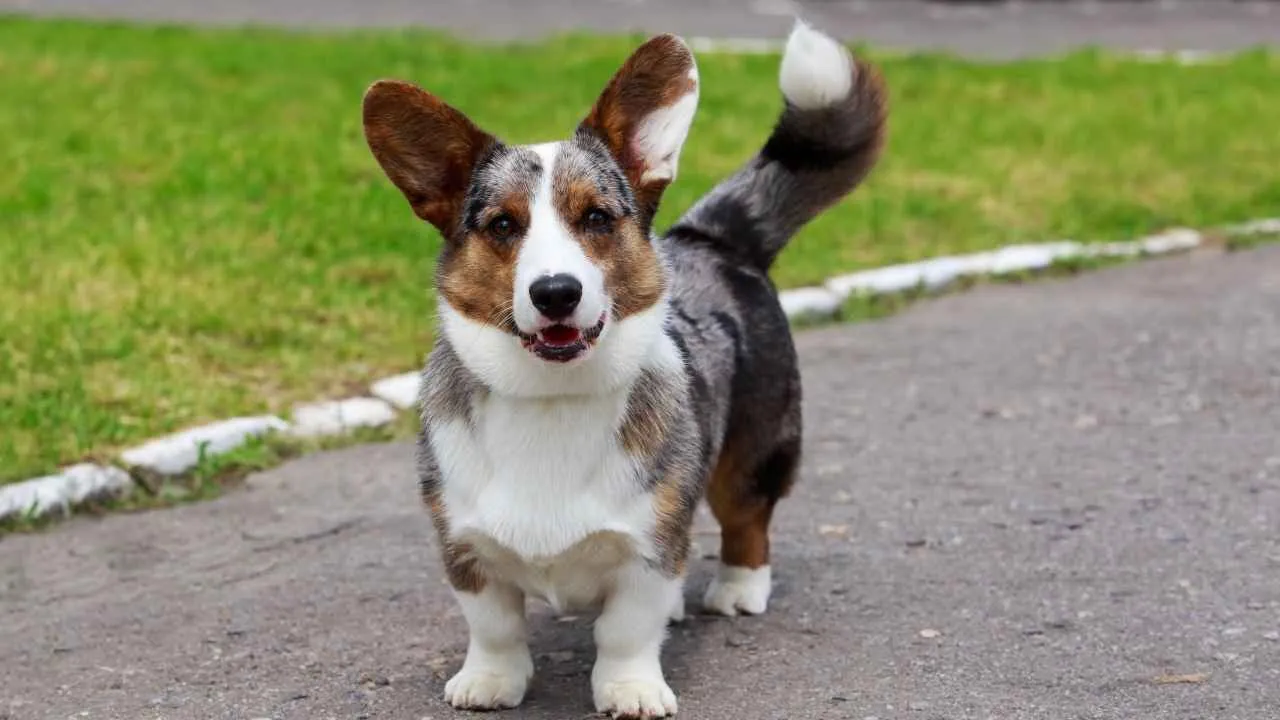
Height: 10.5-12.5 inches
Weight: 25-38 pounds
Lifespan: 12–15 years
Group: Herding
Cardigan Welsh Corgis are among the rare dog breeds with blue eyes, though this trait is typically limited to blue merle varieties. One of the oldest herding breeds, the Cardigan Welsh Corgi originated in Wales and was bred to herd livestock and guard farms.
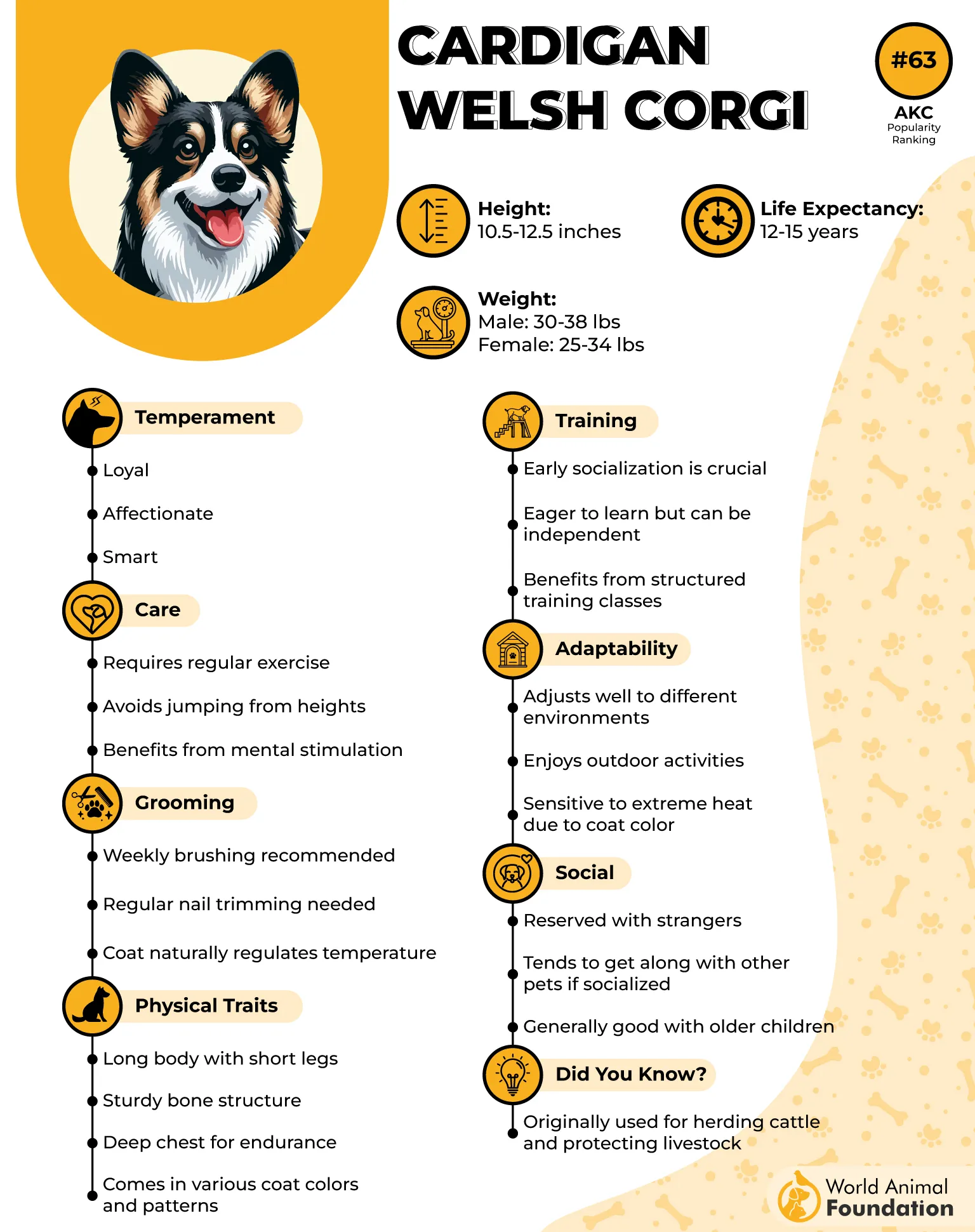
Key traits
Strong herding instinct—known for heel-nipping behavior
Communicates through a mix of barks, growls, and whines
According to Pawlicy, they bond deeply with family and love being included in daily life
This breed’s piercing blue eyes, when present, are striking against their merle patterns and unique coat patterns. They’re intelligent, affectionate, and fiercely loyal, making them one of the most beloved dogs in the canine world.
5. Boston Terrier
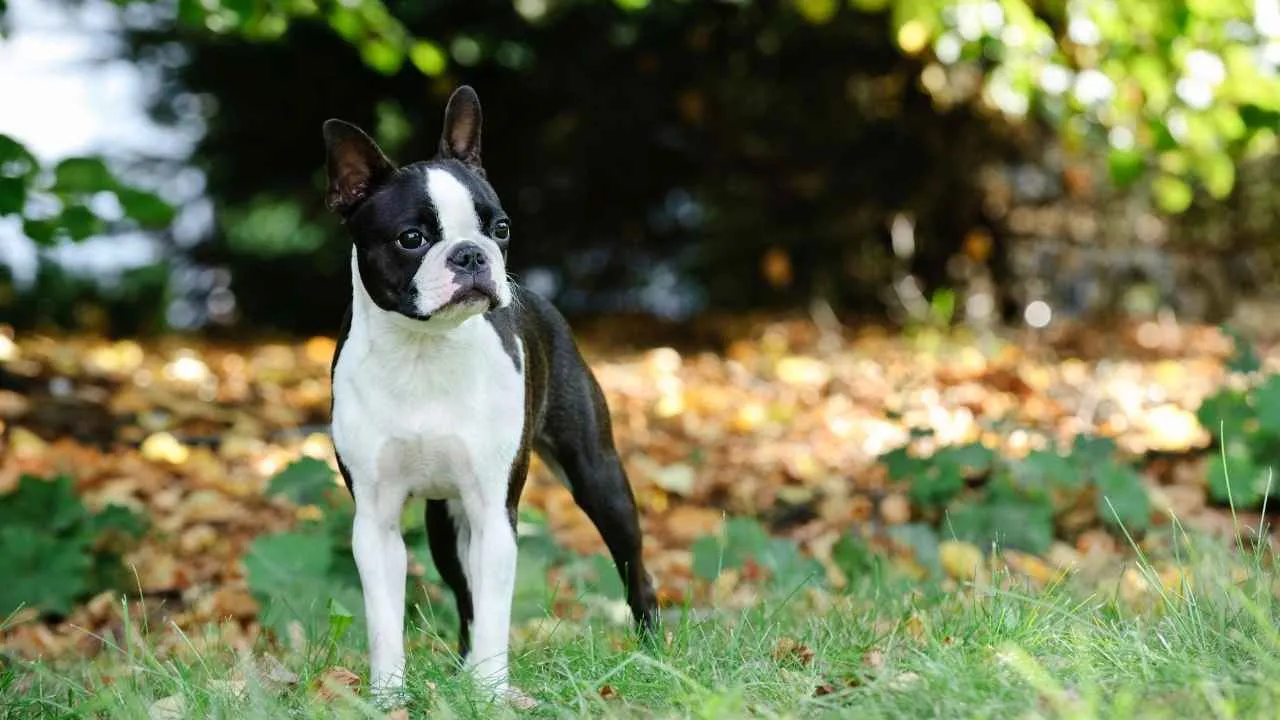
Weight: 12–25 pounds
Height: 10-12 inches
Group: Non-Sporting
Lifespan: 11-13 years
While most Boston Terriers flash charming brown eyes, some carry a rare trait that makes them stand out—a pair of piercing blue eyes. Though uncommon, blue eyes in this breed occur due to genetics passed down from early generations. It’s a quirky surprise from a dog already packed with personality.
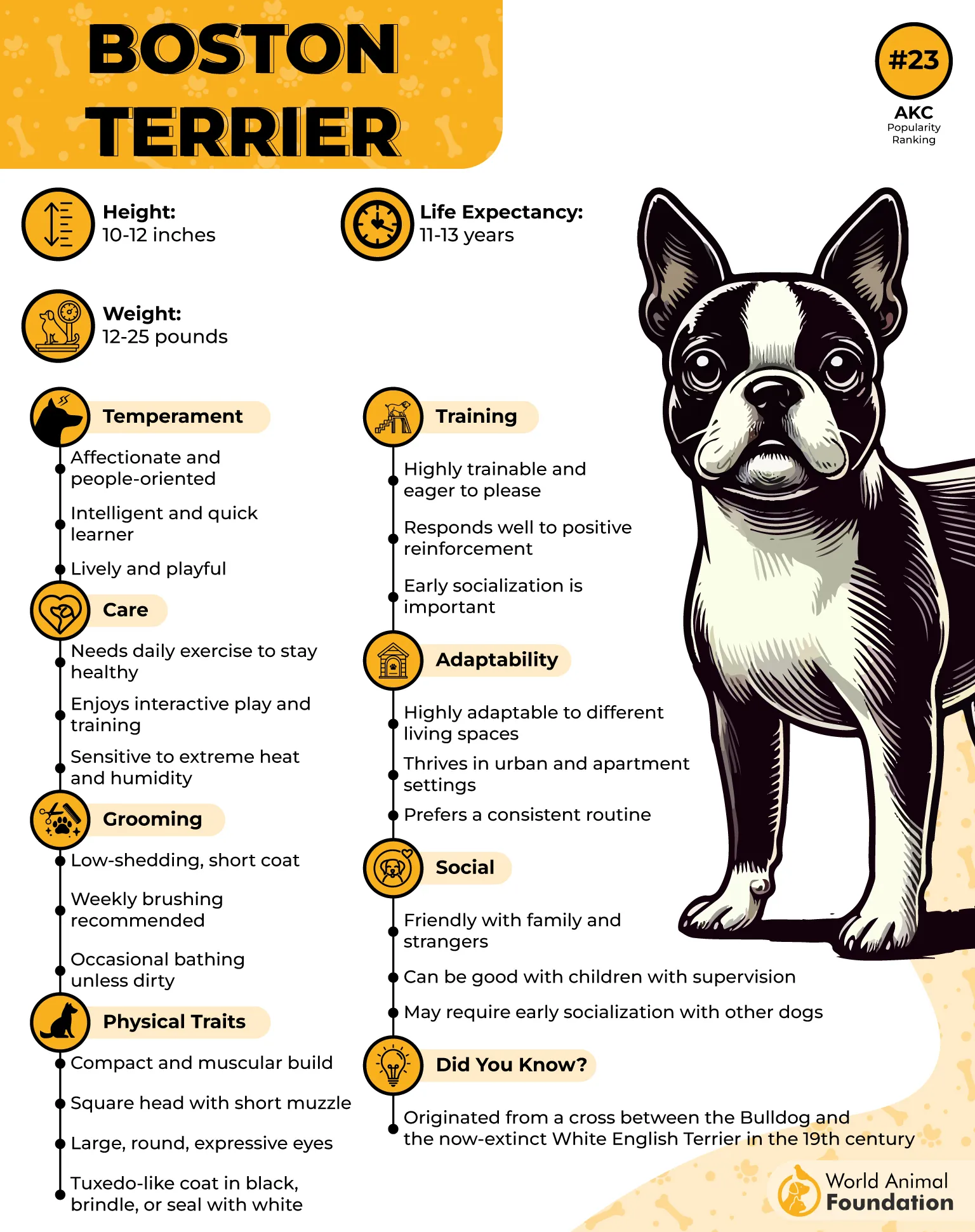
Small Dog, Big Personality
Nicknamed the “American Gentleman” for their sleek tuxedo-like coats, Boston Terriers are playful, affectionate, and make ideal companions for city dwellers or constant travelers. Their compact size and cheerful nature make them easy to live with.
Key traits
These dogs have large eyes and expressive faces that often seem to smile.
Despite their genteel looks, Boston Terriers were originally bred from Bulldogs and White Terriers for fighting—a past they’ve long left behind in favor of couch cuddles.
They’re also relatively quiet and polite, rarely barking without cause. Just be ready for a little gas—those short muzzles mean they swallow more air, which can lead to, well, some noisy moments.
6. Labrador Retriever
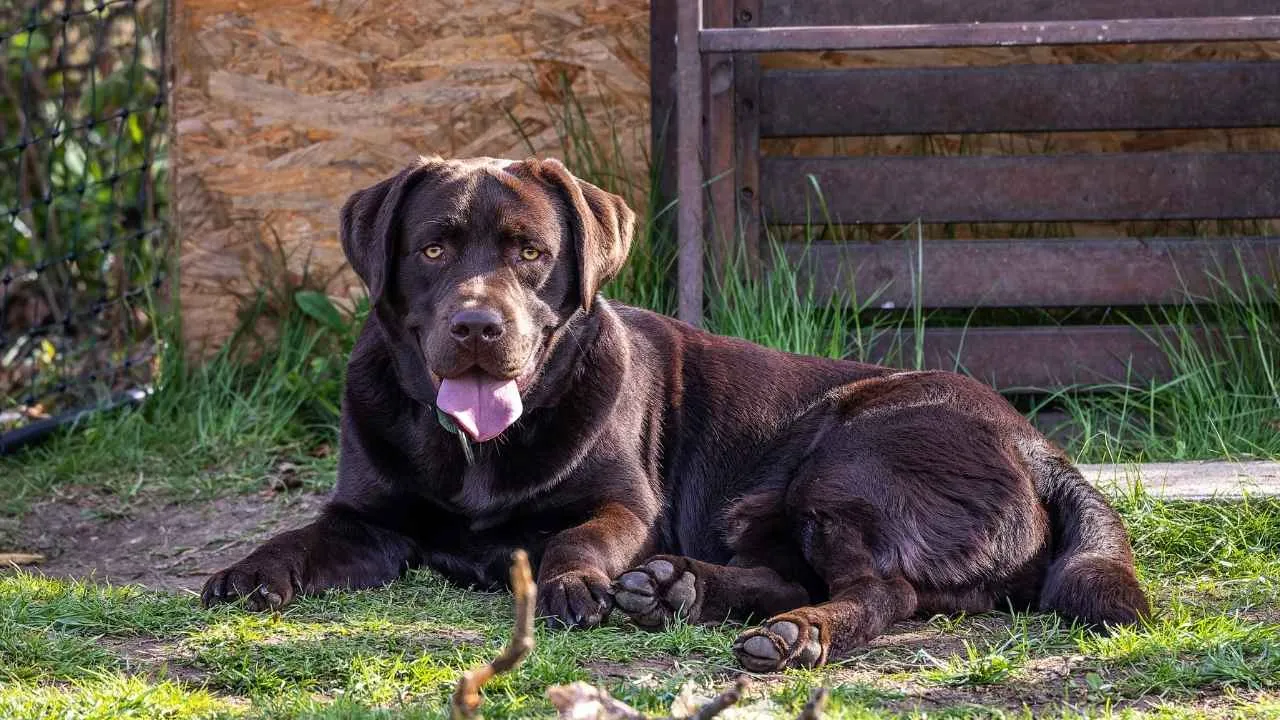
Group: Sporting
Height: 21.5–24.5 inches
Weight: 55–80 pounds
Life Expectancy: 11–13 years
Labrador Retrievers don’t typically have blue eyes, but rare genetic variations or specific coat combinations—like diluted colors or certain mixed lines—can produce striking blue eyes, especially in puppies. These cases are uncommon, but they add an unexpected twist to an already adored breed.
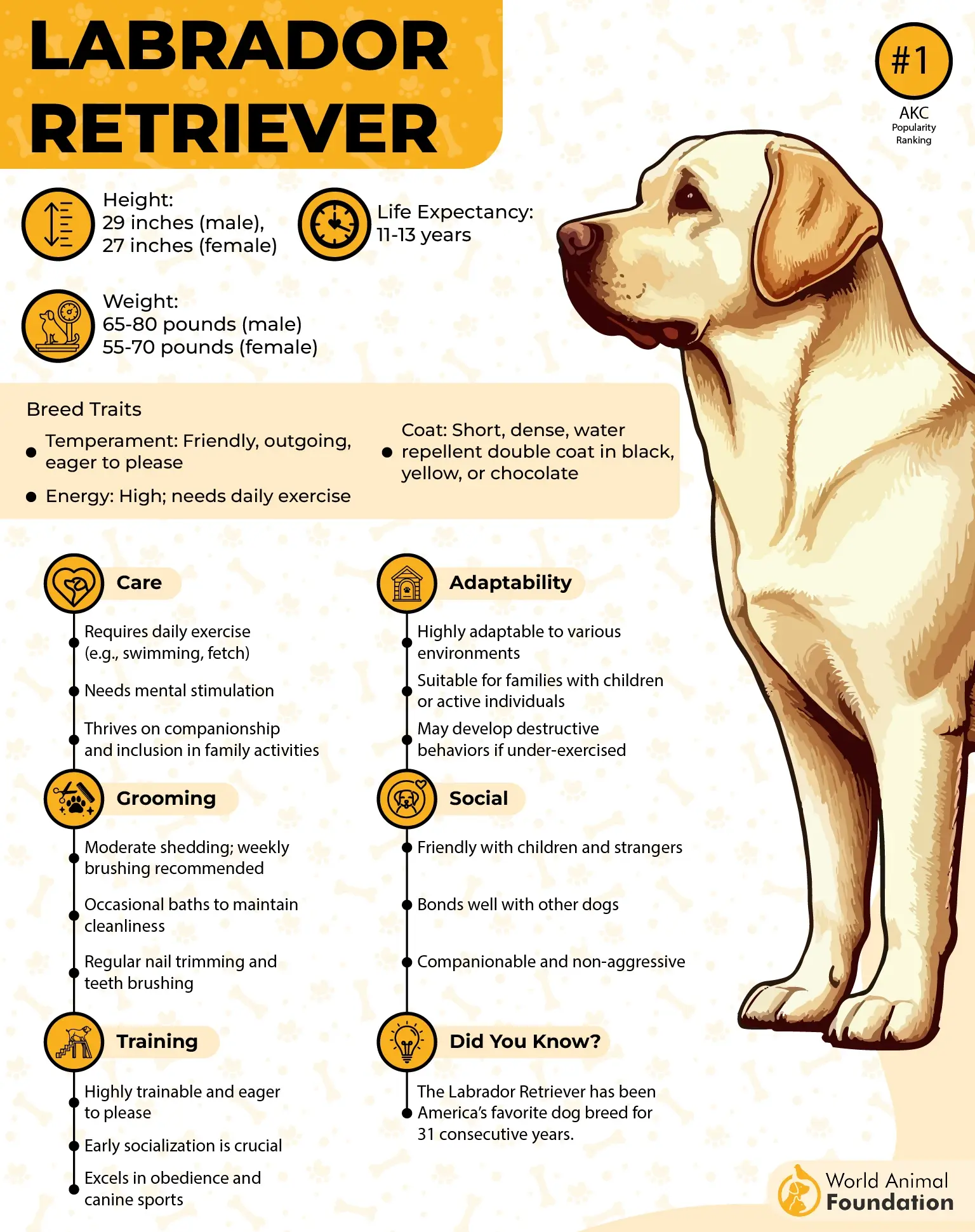
Friendly, Trainable, and Always Up for a Swim
For over 30 years, Labradors have been America’s top dog—and for good reason. They’re outgoing, easygoing, and ridiculously versatile. Whether they’re working as service dogs, helping out in the field, or curled up next to your kids, Labs bring warmth, intelligence, and dependability.
Key traits
These dogs were originally bred for water retrieval, and their webbed feet and otter-like tails make them naturally strong swimmers.
That trait, along with their “soft mouth”—meaning they can carry things gently without damage—makes them excellent hunting companions and therapy dogs.
Labradors are also incredibly trainable. A good run, a game of fetch, or a splash in the lake, and they’re happy campers.
7. Poodle
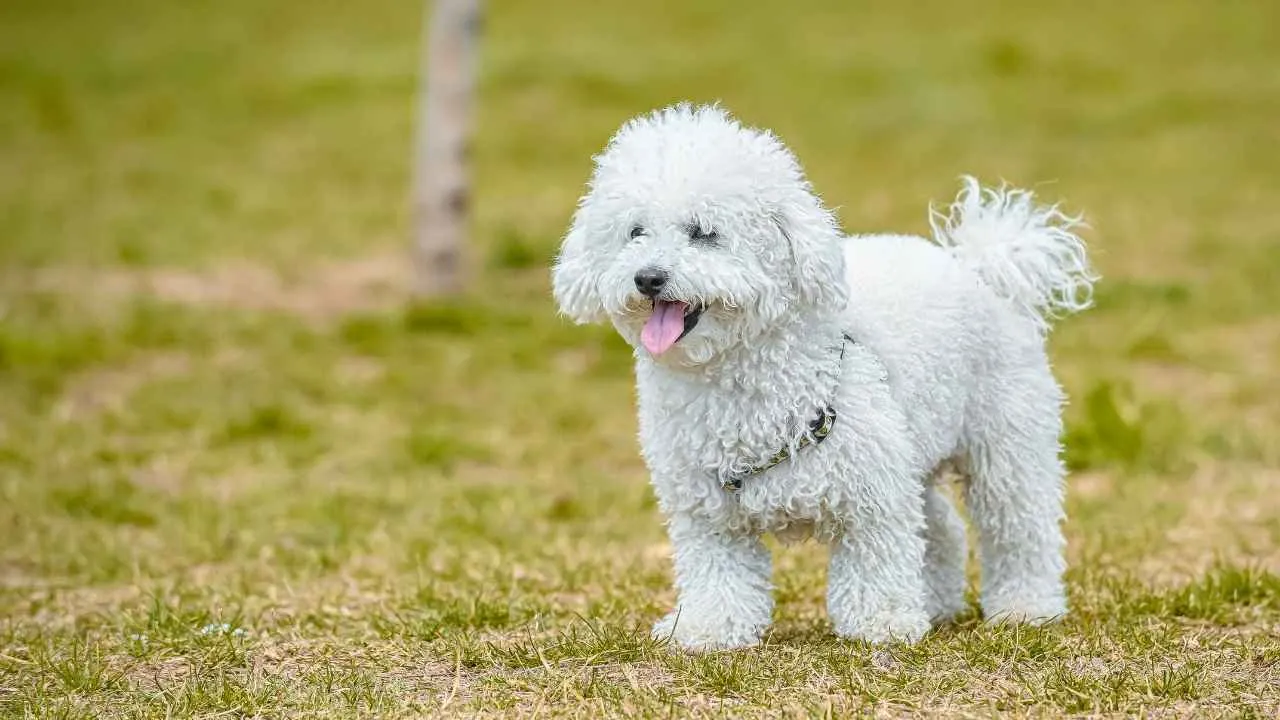
Group: Non-sporting
Height: Over 15″ (Standard), 10–15″ (Miniature), up to 10″ (Toy)
Weight: 40–70 lbs (Standard), 10–15 lbs (Miniature), 4–6 lbs (Toy)
Life Expectancy: 10–18 years
Blue eyes in Poodles are not standard. While it might happen, it’s usually the result of crossbreeding rather than purebred genetics. Coat color doesn’t do much to influence blue eyes here, despite popular belief. So if you spot a blue-eyed Poodle, chances are there’s a little mix-and-match in their family tree.
Elegant, But Not Just for Show
Poodles are sharp, athletic, and highly adaptable. Whether it’s the Standard, Miniature, or Toy variety, these dogs pack a surprising amount of personality and energy into their curly-coated frames.
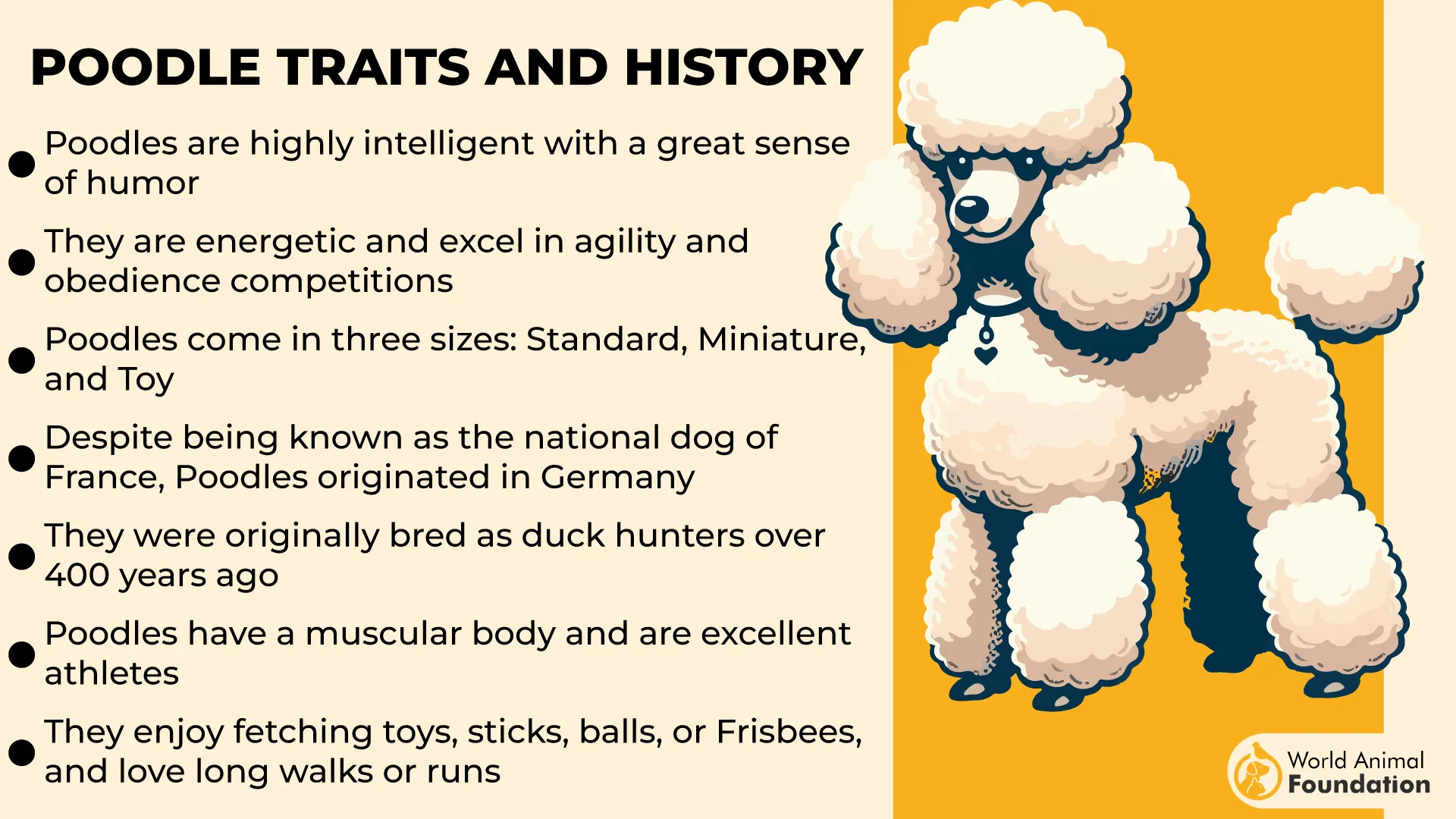
Key traits
These dogs are natural swimmers, thanks to their history as water retrievers and their water-resistant curls.
Their versatility makes them amazing service dogs, therapy dogs, and—believe it or not—truffle hunters.
They also have a neat party trick—some Poodle coats change color as they grow.
Low-shedding, brainy, and beginner-friendly, Poodles bring both elegance and energy to the table. Blue-eyed or not, they’re one of the most adaptable breeds around.
Conclusion
Every shade of blue eyes tells a story of genes, coat patterns, and sometimes even temperament. As we dive deeper into this canine world, you’ll discover what makes blue-eyed breeds so captivating—and how to set them (and you) up for a happy, healthy life together.
In many cases, blue eyes are linked to specific coat patterns like merle or dilute pigmentation. Sometimes it’s genetic luck, sometimes it’s a result of selective breeding. Either way, blue eyes can hint at deeper layers of a dog’s lineage—whether that means a recessive gene, a color dilution, or even crossbreeding in their background.
While blue eyes may grab your attention, they shouldn’t be the only factor guiding your choice. Behind those icy stares are dogs with unique needs, temperaments, and energy levels.


